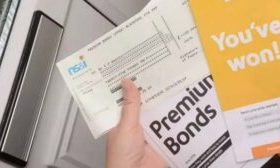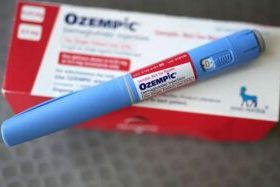
The long-running legal saga between Hewlett Packard Enterprise (HPE) and the estate of British tech entrepreneur Mike Lynch has reached its dramatic conclusion, with a High Court judge ordering £730 million in damages—a figure that could rise substantially once interest is added later this year.
The ruling, delivered by Mr Justice Hildyard, stems from the 2011 acquisition of Lynch’s business software company Autonomy for $11.7 billion (£8.7 billion) by HP. The judge concluded in 2022 that Lynch and his finance chief, Sushovan Hussain, had fraudulently inflated Autonomy’s value through accounting irregularities, and this week issued his long-awaited damages ruling.
The sum, which may ultimately wipe out Lynch’s estate, represents one of the largest corporate fraud penalties in UK legal history. Hildyard acknowledged that HP’s original $4 billion claim was “substantially exaggerated”, but still found that Autonomy’s true value was materially lower than represented during the sale.
“Had Autonomy’s accounts been properly stated,” he wrote, “the deal would likely have valued each share at £23 rather than the £25.50 HP paid.”
The judgment comes almost a year after Lynch’s tragic death at sea. In August 2024, while celebrating his acquittal in a separate US criminal trial, Lynch’s 56m superyacht Bayesian was hit by a violent 80mph gust off the coast of Sicily. The vessel capsized, and Lynch, along with his 18-year-old daughter Hannah, drowned. His wife, Angela Bacares, was rescued by a crew member.
Now, Lynch’s estate must bear the financial cost of the UK civil ruling. The Sunday Times Rich List recently valued the family’s holdings at £473 million. Assets such as the family’s Suffolk estate, Loudham Hall, and a substantial shareholding in cybersecurity firm Darktrace—sold for more than $300 million last year—are held in Bacares’ name. However, HP may pursue those assets if it can prove they were, in reality, controlled by Lynch.
A spokesperson for Hewlett Packard Enterprise welcomed the decision, saying: “We are pleased that this decision brings us a step closer to the resolution of this dispute. We look forward to the further hearing at which the final amount of HPE’s damages will be determined.”
In contrast, a posthumous statement written by Lynch before his death hit back at HPE’s claims: “This judgment confirms that HP’s claim was not just a wild overstatement, but off the mark by 80 per cent. The result shows that the immense damage to Autonomy was due to HP’s own errors.”
HP’s acquisition of Autonomy, a Cambridge-based pioneer in big data analytics founded by Lynch in 1996, was once hailed as a landmark transatlantic tech deal. But within months, HP alleged that Autonomy’s revenue and margins had been artificially inflated using questionable accounting techniques.
The fallout triggered a decade of litigation, investigations and public scrutiny. Sushovan Hussain was convicted of fraud in the US in 2018 and served five years in prison. He later settled his liability with HPE for an undisclosed sum.
Audit firm Deloitte, which signed off on Autonomy’s accounts, was fined £15 million in 2021 by the UK’s Financial Reporting Council for “serious failures”.
Though Lynch was acquitted in a separate US criminal trial in June 2024, the UK civil case continued. Mr Justice Hildyard’s latest decision draws a final line under what is widely considered one of the most contentious and costly corporate acquisitions in British tech history.
A final hearing in November 2025 will determine the full amount owed once interest is applied, with the damages potentially far exceeding the currently awarded £730 million.
For many, it marks the end of a cautionary tale—not only about cross-border M&A, but also about corporate governance, due diligence, and the personal cost of business empire-building.
Read more:
Mike Lynch’s estate hit with £700m bill as High Court rules in HP’s favour over Autonomy fraud






